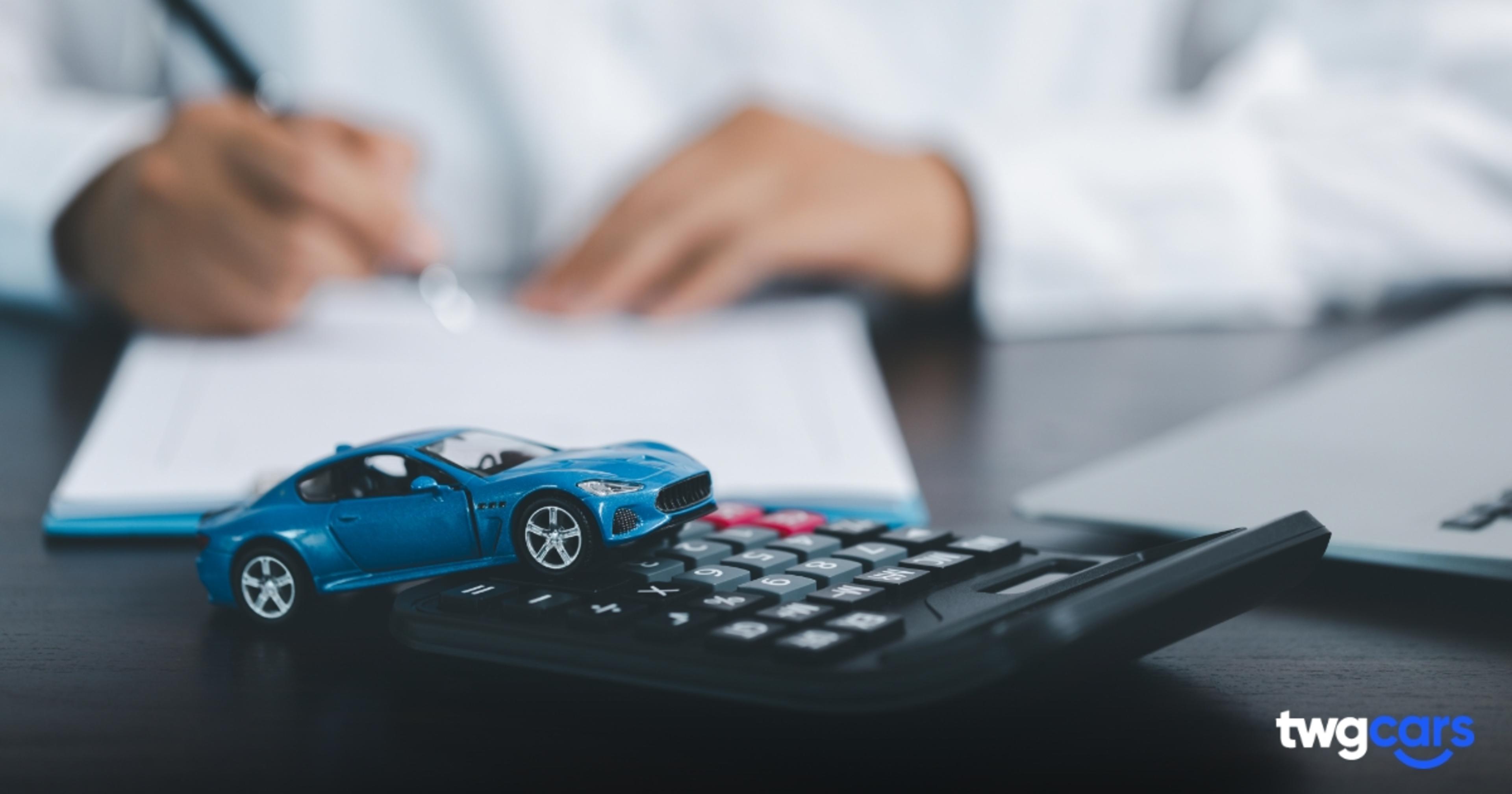How to Assess Your Car Resale Value

Curious about your car’s resale value? This article will help you understand the key factors that affect your car's value, helping you make an informed decisions about the sale of your car. There are many online tools that can help you with this too, while these can be fairly accurate, it's always best to know how to evaluate these things yourself.
Key Takeaways
- Several factors significantly influence a car’s resale value, including its condition, mileage, and the make and model, which must be considered when assessing a vehicle’s worth.
- Using online valuation tools effectively necessitates precise entry of vehicle details and thorough description of the car’s condition to achieve accurate resale estimates.
Understanding the Value of Your Car
Knowing a car’s resale value is vital as it indicates the amount the vehicle can fetch when sold after purchase. This knowledge is critical for both buyers and sellers, significantly influencing financial decisions. But what exactly determines this value?
Market value is defined as the reasonable price expected to pay for a used car in the current market, reflecting the true market conditions. Online car pricing tools usually utilise trusted industry data and aggregated pricing from on-site listings to provide accurate valuations. This ensures that the information you receive is up-to-date and reflective of the current market conditions.
To use these tools effectively, users select their vehicle’s make, model, and year from a drop-down menu. This provides a comprehensive car price guide, helping you understand the current market value of your car and make informed decisions about selling or trading it in.
But the value of your car is not determined solely by its make and model - this is where the online tools can sometimes fail in giving you an accurate estimate of value. The true market value of your car is more difficult to determine as it's impacted by your car's condition and what the current market wants.

Key Factors Influencing Car Resale Value
Several factors, including condition, mileage, age, brand, and model, significantly influence a car’s value. These factors directly impact the market value, making them important for anyone looking to sell their car.
The condition and maintenance history of a vehicle are key determinants of its resale price. In the following subsections, we will delve into the specifics of how the car’s condition, mileage, and brand and model influence its resale value.
Condition of the Car
The car’s condition is a major factor impacting its market value. A vehicle in poor condition will have a significantly lower resale value than one in good condition. Known issues or necessary repairs can further decrease a car’s worth.
Regular maintenance can enhance a car’s resale value by showing it has been well cared for. Maintaining a clean car, both inside and out, enhances its appeal and can positively influence its market value.
Even minor scratches and dents can reduce a car’s overall value. Ensuring the car is in good condition, free from cosmetic damage, can help retain a higher resale value.

Mileage
Mileage is another critical factor that heavily influences a car’s resale value. Higher kilometres typically reduce the car’s worth, as they indicate greater wear and tear. Cars with lower-than-average mileage are generally more appealing to potential buyers and retain higher resale value.
Keeping the mileage in check helps maintain the car’s market value.
Brand and Model
The make and model of a vehicle can greatly influence its resale value. Premium brands often retain value better than budget options. Opting for a popular car model or a new car can significantly boost its resale value in the used car market.
Popular models tend to have a broader appeal, making them easier to sell at higher prices. This is why considering the brand and model is crucial when purchasing a car that you plan to resell later.
How to Use Online Tools for Car Resale Value
Online valuation tools provide a convenient way to assess car resale value. These tools can give you a car valuation in seconds, making the process quick and easy.
For the most accurate valuation, enter precise details about your vehicle, including make, model, year, and mileage. This information helps the tool provide a reliable estimate of your car’s worth.
Describing your vehicle’s condition thoroughly aids in achieving a more accurate value estimate. Accurately entering all vehicle details, such as service history and condition, is crucial for obtaining reliable car value estimates.
Entering Vehicle Information
Entering accurate details about your vehicle, such as make and model, is essential for obtaining a reliable valuation. This includes specifics like the year, mileage, and overall condition of the car. Not entering precise information can lead to inaccurate valuations, which may affect the sale process.
Being meticulous when entering your vehicle’s details is important.

Answering Condition Questions
Describing your vehicle’s average condition thoroughly aids in achieving a more accurate value estimate. Entering precise details about your vehicle, including its condition and mileage, is crucial for receiving reliable valuation estimates.
Accurately entering all vehicle details, such as service history and condition, is crucial for obtaining reliable car value estimates. Accurate and detailed descriptions of a vehicle’s condition significantly affect the accuracy of the car’s resale value estimate.
Reviewing the Appraisal
The appraisal results are typically based on the most recent sales data from similar vehicles in your area. Understanding the factors behind these appraisals can aid sellers in making informed decisions on pricing and negotiations.
Interpreting appraisal results helps you understand your car’s value in the current market. Sales data allows you to see how similar vehicles have been valued, providing a benchmark for your own car’s worth.
Comparing Resale Value vs. Trade-In Value
One downside of trading in a vehicle is that the trade-in value is typically lower than the car’s market value. However, trade-ins are more convenient as dealers manage the paperwork and logistics involved in the process.
Selling a car privately allows the seller to control the sales process, including setting the price and negotiating with buyers. Private sales can often yield a higher price compared to trading it in due to the absence of dealer profit margins.
However, private sales can be time-consuming as they involve finding buyers, negotiating terms, and completing paperwork. Weighing the pros and cons of each option helps you decide which is best for you.

Current Trends in Used Car Prices
Market conditions, including supply issues and regulatory changes, can significantly impact a vehicle’s resale value. Recently, elevated inflation and rising interest rates have diminished household spending capacity, affecting demand for used vehicles. This economic backdrop is crucial to understand when evaluating current car prices.
In 2024, we have seen the prices of used cars rise and fall along with the season, which is typical of the used car market. One trend to consider is the ability of older vehicles to retain their value, making purchasing used cars a wiser financial decision than buying new cars.
Certain model variants, particularly popular or vintage ones, sometimes appreciate in value despite aging. Understanding these trends can help you make informed decisions about when to sell your car and what price to expect in the open market.
Tips to Maximise Your Car's Resale Value
Maximising your car’s resale value involves several strategic steps. Regular maintenance and prompt repairs can greatly enhance a car’s perceived value. Keeping your car in good condition, both mechanically and aesthetically, is crucial for attracting potential buyers.
Detailed service records demonstrate the car’s good condition and can boost its resale price. Prospective buyers are more likely to pay a higher price for a vehicle with a well-documented maintenance history. Additionally, avoiding excessive personalisation helps maintain a broader appeal, potentially preserving or enhancing resale value.
The following sections delve into these strategies, offering actionable tips to help you get the best possible price for your car when it’s time to sell.

Regular Maintenance
Regular maintenance keeps your car in optimal condition, directly influencing its resale value. Conducting routine checks and servicing ensures that any potential issues are identified and addressed before they escalate, preserving the vehicle’s mechanical integrity.
A well-maintained car often has fewer problems and a longer lifespan, both crucial factors buyers consider when assessing resale value. Keeping detailed service records enhances the credibility of your car’s maintenance history, appealing to prospective buyers.
Keeping Detailed Records
Consistent servicing and keeping detailed records of maintenance contribute positively to a car’s resale value. Maintaining thorough service records serves as proof of proper care and can positively influence a buyer’s perception of value.
A comprehensive service history shows care and instils confidence in potential buyers. This documentation can be a significant selling point, often leading to a higher resale price.

Avoiding Excessive Personalisation
Personalisation negatively affects a car’s resale value and reduces appeal to buyers. While some custom features may add value, excessive or highly specific customisations can deter potential buyers.
Keeping the same car close to its original state ensures it appeals to a broader audience. This broader appeal can help maintain or even enhance the car’s resale value.
Using Car Valuation Tools Effectively
Using car valuation tools effectively can significantly aid in making informed decisions regarding selling or financing your vehicle. Accurate car valuations are influenced by understanding various pricing benchmarks and recognising the subjective nature of a vehicle’s worth.
Selecting the right tool and ensuring input accuracy are crucial steps in this process. In the following subsections, we will discuss how to select the best tool and the importance of entering precise data.
Choosing the Right Tool
Choose a car valuation tool that meets your needs, considering aspects like accuracy, user-friendliness, and the range of data provided. Free tools that offer transparency in their valuation process are particularly beneficial.
A valuation tool that uses unbiased data from automotive history can enhance the accuracy of the car’s estimated value. Choose a tool that accounts for multiple factors, including make, model, year, mileage, condition, and current market demand.
Input Accuracy
Entering the correct vehicle details is crucial, as inaccurate inputs can lead to misleading appraisal results. Reliable estimates depend heavily on the precision of the inputs provided, underscoring the importance of accuracy during data entry.
Even minor errors in vehicle information can significantly affect the estimated resale value. After entering the information, double-check each detail for accuracy to ensure reliable results.
Summary
In summary, understanding your car’s resale value is crucial for making informed financial decisions. Using tools can provide accurate valuations, helping you understand the current market value of your vehicle. Key factors such as condition, mileage, and the make and model of your car play significant roles in determining its resale value.
By following the tips provided—maintaining your car regularly, keeping detailed service records, and avoiding excessive personalization—you can maximise your car’s resale value. Armed with this knowledge, you’re well-prepared to navigate the used car market and get the best possible price for your vehicle.

Frequently Asked Questions
Why is understanding car resale value important?
Understanding car resale value is crucial as it impacts financial decisions related to buying and selling vehicles. This knowledge helps in maximising potential returns and making informed choices during transactions.
What factors influence car resale value the most?
The car's condition, mileage, and make and model are the most influential factors on its resale value. Regular maintenance and detailed records further enhance its worth.
How can I use online tools to assess my car's resale value?
To accurately assess your car's resale value, utilise online tools by entering detailed information about your vehicle, including its make, model, year, and condition. This approach will yield a reliable valuation.
What are the current trends in used car prices?
Current trends indicate a slight increase in used car prices in Australia; however, a decline is anticipated in 2024 due to increased supply and elevated borrowing costs.
How can I maximise my car's resale value?
To maximise your car's resale value, focus on regular maintenance, keep detailed service records, and avoid excessive personalisation. These actions will enhance the vehicle's appeal and market value significantly.
Resources


